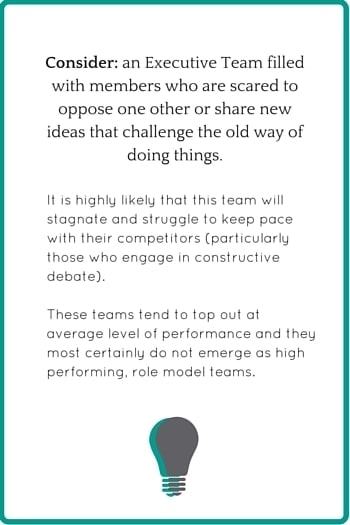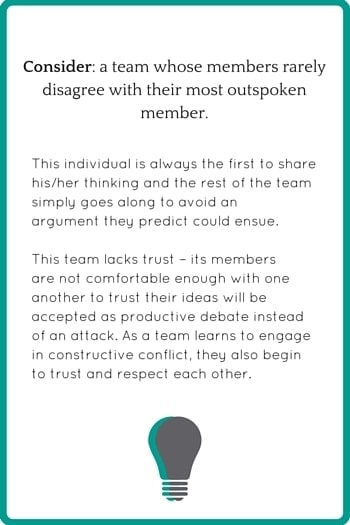The word “conflict” alone can elicit relatively negative reactions. It conjures up thoughts of raised voices, arguments, and potentially hurt feelings. However, if conflict is used strategically and managed the right way, it can actually lead to improved team performance. In fact, the ability to engage in constructive conflict is a key factor in the development of high-performance teams.
Conflict often occurs when diverse perspectives collide. Although this certainly has the potential to end in disaster, there are a couple of key ways that conflict facilitates team success.
So, why does conflict actually make a team better?
1. It helps overcome team inertia.
In today’s fast-paced business world, maintaining the status quo or becoming complacent is almost always riskier than confronting conflict. Still, many teams hang on to the idea that conflict generates negative consequences.
But let’s take a minute to look on the bright side: conflict can be necessary for creative idea generation and productive conversation. In fact, being able to work through conflict helps teams learn how to resolve issues in ways that encourage compromise and creativity.
Constructive conflict is precisely what pushes groups to become more than the sum of their individual members. In this sense, opposing ideas influence, complement, provoke and inform one another. And in the best of scenarios, the final decision is better because of it.
2. It improves team trust.
A second, incredibly important part of team effectiveness involves the development of trust and cohesion. As teams learn to embrace and manage conflict, they grow together and become more in tune with each other’s thought processes.
To embrace conflict means to welcome it out of curiosity and without expecting an apology. Over time, team members start to expect challenge and provocation, and as a result, their reactions become adaptive (versus disastrous).
Ultimately, teams that are comfortable pushing back on one another without fear of reprisal are able to drive their performance to the next level. They not only avoid stagnation and improve their collective decision-making ability, but they also become stronger in the process. It’s a win-win situation.

Think of a team you’re currently on: Do you believe your team engages in constructive conflict? Are there times during which team members may shy away from challenging one another? How might you communicate the benefits of engaging in productive debate? Sound off in the comments below.
Looking for help in coaching your team how to use conflict constructively? Send us a message.
